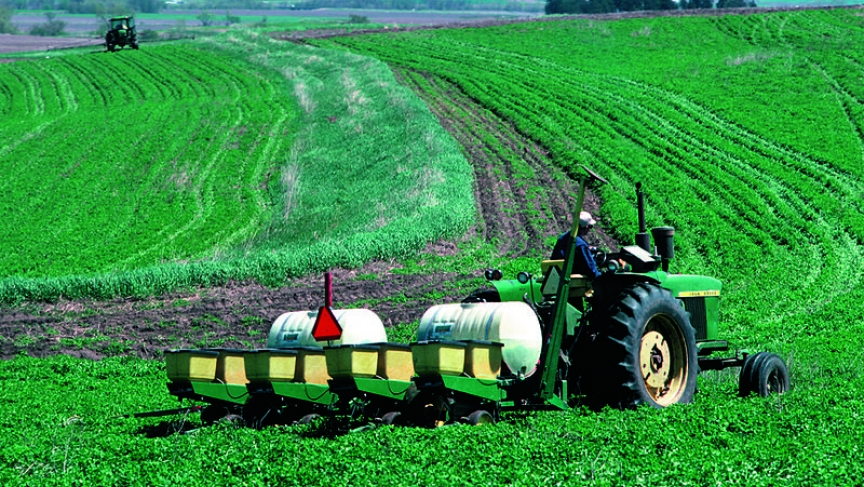 What if there were a simple solution to fighting climate change right under our feet? In her new book, The Soil Will Save Us, journalist and writer Kristin Ohlson says there is.
What if there were a simple solution to fighting climate change right under our feet? In her new book, The Soil Will Save Us, journalist and writer Kristin Ohlson says there is.
“The soil has been playing a mighty role in our climate ever since we've been a planet,” Ohlson says. It's full of carbon fuel that helps plants and microorganisms thrive, but today's industrial farming methods rip up the soil and release huge amounts of that carbon into the air.
Ohlson argues that returning to no-till farming practices, which leave the soil undisturbed and carbon trapped underground, will help reverse climate change and solve other pressing environmental issues at the same time. "Everything we want for our planet above the soil line depends on the activity of those microorganisms below," she says.
“Plants take carbon dioxide out of the air,” Ohlson explains. “They convert that into a carbon fuel for themselves, but they share 40 percent of that carbon fuel with the soil microorganisms. The soil microorganisms take that carbon fuel, and they eat it and they grow with it and they make a glue with it to create habitat down in the soil. All those activities fix carbon in the soil.”
But when humans came along, Ohlson says, we started “messing up nature” — with agriculture, burning forests, plowing up the soil and changing the behavior of animals on the land. Worse, we started releasing all the carbon in the soil.
One of the best solutions, Ohlson says, is also one of the simplest: no-till farming. With this method, farmers plant crops with minimal disturbance of the soil, keeping the essential system of microrganisms intact. That helps keep all of that carbon in the soil instead of releasing into the air.
David Johnson, a scientist at New Mexico State University, has been doing “amazing work,” Ohlson says, using no-till agriculture in conjuction with dense cover crops — plants, such as legumes and grasses that grow in places and at times when the ground would otherwise be bare.
Read more and listen to broadcast: http://www.pri.org/stories/2014-08-25/old-school-farming-methods-could-save-planet























